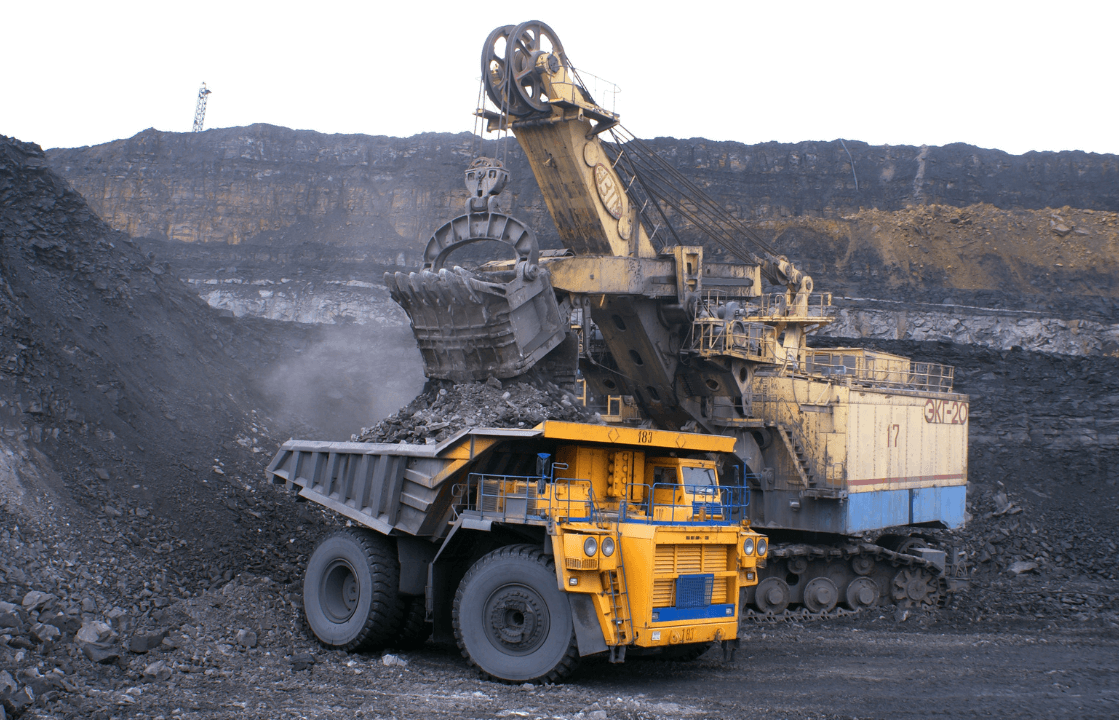How Much Does Rock Excavation Cost?

Rock excavation is a critical part of construction projects, allowing for the development of sturdy foundations and key infrastructure. But how much does rock excavation cost, particularly when using a drum grinder?
On average, costs range from $50 to $200 per cubic yard, with factors like soil type, project size, and location impacting the final price.
This blog will cover these cost elements and provide practical advice to help you plan your excavation project budget effectively, keeping your project on track and within financial goals.
Key Takeaways
- Rock excavation costs can range from $50 to $200 per cubic yard, depending on factors like soil type, project size, and equipment needs.
- Proper planning and the use of efficient tools can significantly reduce excavation costs by optimizing project plans and using existing materials.
- Working with experienced excavation contractors and companies like RockZone America ensures quality and cost-effective solutions, keeping projects on track and within budget.
Rock Excavation Explained
Rock excavation is the process of removing rocky soil and underground obstructions to prepare a construction site for development. This crucial step involves grading, debris removal, and creating a solid foundation for new structures.
Specialized equipment like drum grinders and heavy machinery tackle rocky terrain to ensure that the construction site is level and stable. These efforts are essential for maintaining structural integrity and safety on any project site.
Rock excavation is vital in a construction project because it provides a stable base for structures, such as basement foundation walls and existing buildings requiring foundation repairs. Without proper earth excavation, buildings risk structural issues like uneven settling and water damage.
The process also involves calculating excavation costs, including equipment and dirt removal fees.
What Influences Excavation Costs?

Understanding the numerous factors that influence excavation costs is crucial for effectively budgeting a land excavation project. Costs can vary significantly between small residential projects and large construction projects.
Let’s break down these factors to help you plan your project budget more accurately and avoid unexpected expenses.
Project size and depth
Excavation costs are typically measured per cubic yard, which means larger projects naturally incur higher costs. For instance, digging a large basement foundation wall requires moving more cubic yards of material compared to a small site cleanup or grading project.
The depth of the excavation is another factor, as deeper excavations demand more extensive planning, additional equipment, and potentially higher labor costs.
Soil and terrain type
Excavating rocky soil or dealing with excessive clay can be more challenging and time-consuming compared to working with light soil.
Rocky terrain often requires specialized excavation equipment to break through hard layers, which can increase both equipment rental costs and labor expenses. Areas with light soil typically require less intensive excavation work and fewer resources, resulting in lower costs.
Accessibility and location
If a job site is difficult to access due to tight spaces or challenging terrain, the excavation contractor may need specialized equipment, leading to higher costs.
Construction costs can vary between urban and rural locations. Urban areas might have higher equipment and delivery fees, while rural projects could face increased costs due to the distance and logistics of transporting heavy machinery and materials.
Labor and equipment costs
The average excavation cost includes labor fees for skilled workers and project managers, as well as the cost of renting or using excavation equipment.
The type of equipment required significantly influences costs, whether it involves heavy machinery for rocky terrain or smaller machines for tight spaces. Hiring an experienced excavation contractor guarantees efficient and safe work, reducing costs in the long run.
Permits and legal requirements
Conducting a land survey is essential to accurately assess the site's slope and soil elevation, as well as identify any existing structures or underground obstructions like buried pipes.
Implementing an erosion control plan and sediment control measures effectively prevents environmental damage. Permit costs will add to the total project budget, making it crucial to account for these expenses early in the planning stages.
How to Plan and Manage Excavation Costs
Managing land excavation costs is essential to keeping your project on track and within budget. Understanding how to calculate excavation costs and implement cost-saving strategies will ensure success for both residential and large construction projects.
Here’s a detailed look at cost management and planning to help you approach your excavation project with confidence.
Calculating excavation costs
To calculate the total cost of an excavation project, first assess the specific requirements. Start by evaluating the scope of work, including the size of the excavation project, soil type, and the volume of material to be moved.
Land excavation cost is typically measured per cubic yard, making it essential to estimate the cubic yards involved accurately. Gather quotes from multiple excavation contractors to find the best rates.
Excavation contractors' charges differ, and costs vary based on factors such as labor, equipment rental, and additional services like dirt removal and land clearing. Comparing these quotes allows you to make informed decisions and optimize your budget.
Reducing costs
One effective approach involves optimizing project plans to minimize expenses. For instance, using existing soil or filling dirt on-site can save on dirt delivery fees.
Consider DIY excavation for small projects like land grading or tree removal if you have the skills and equipment. Assess the potential savings against the risks and complexity of the work to make an informed decision.
Selecting the right excavation contractor
Choosing the right excavation contractor ensures quality and cost-effectiveness. Look for key qualities such as experience, a strong reputation, and a proven track record with similar excavation projects.
Ask potential contractors about their past work, safety practices, and how they handle unexpected challenges like hitting rocks or dealing with difficult soil types.
Clarify the excavation services they provide and ensure their estimates include all relevant costs, such as heavy equipment rental and site preparation.
Tackle Excavation Challenges Head-On with RockZone America
RockZone America knows that unexpected excavation costs, like when an excavator hits rock, can turn a simple project into a financial headache.
From small projects like basement foundation walls to larger undertakings like new construction, excavation costs can quickly add up due to numerous factors. This includes the cubic yards of rock and soil type that must be removed, heavy equipment rental, and on-site labor expenses.
RockZone America offers efficient rock excavation solutions designed to minimize both time and cost. Our cutting-edge equipment, including Rockwheels and Rockcrushers, provides cost-effective options for residential projects and more.
The benefits of our low-vibration, low-noise technology typically include grading and erosion control, ensuring that projects are completed smoothly without additional stress. When you partner with RockZone America, you get access to some of the industry's most innovative and reliable tools, making excavation work easier than ever.
Don't let excavation challenges slow you down—call RockZone America today to get the right tools for your project and turn obstacles into opportunities.
Summary
Several factors impact land excavation costs, including the size and scope of excavation projects, soil type, equipment needs, and site accessibility. Understanding these cost factors and planning accordingly can help you manage expenses effectively.
Using innovative tools and techniques, like those offered by RockZone America, can also mitigate potential issues such as excavating rocky terrain or dealing with existing foundation obstacles.
For expert guidance and competitive excavation services, consult RockZone America. Our advanced equipment and skilled team can handle everything from land clearing to grading, ensuring your project stays on track and within budget.
Frequently Asked Questions
How do you calculate the cost of excavation?
To calculate excavation costs, assess factors such as the volume of material to be excavated, measured in cubic yards, and the type of soil or material. Consider the equipment required and estimate costs per cubic yard, including average excavation cost and any minimum project fees.
Factors like accessibility, labor, and disposal of excavated material also impact the total cost. Obtain quotes from multiple excavation contractors to ensure competitive pricing and accurately determine actual costs.
How much does it cost to dig through rock?
Excavating rock is more costly than soil excavation because it requires specialized equipment and additional labor. Costs generally range from $50 to $200 per cubic yard, influenced by factors like rock hardness, site accessibility, and project size.
This type of excavation often incurs extra expenses for renting equipment, such as drum grinders or rock crushers, along with any minimum project fees imposed by the excavation company.
What is the rate of excavator digging?
An excavator's digging rate depends on the type of machine, the material being excavated, and site conditions. On average, excavators can dig between 100 and 200 cubic yards per hour, influenced by soil type and terrain.
Operator skill and equipment efficiency also play significant roles in determining the digging rate, which is a crucial factor in the overall excavation cost for a project.
Why is an excavator so expensive?
Excavators are costly because they feature sophisticated engineering, versatility, and powerful components designed for demanding tasks. The high price reflects the need for heavy-duty parts, advanced hydraulics, and precise control systems.
Maintenance, fuel, and transportation costs also add to their expense, making them a significant investment for excavation contractors and companies.
